Community of Authors workshop
The Intersectional Rewrites project is reimagining European Court of Human Rights judgments through an intersectional lens. In February 2024, the community of authors gathered for a workshop, hosted by the Legal Mobilization Platform, to exchange feedback and ideas.
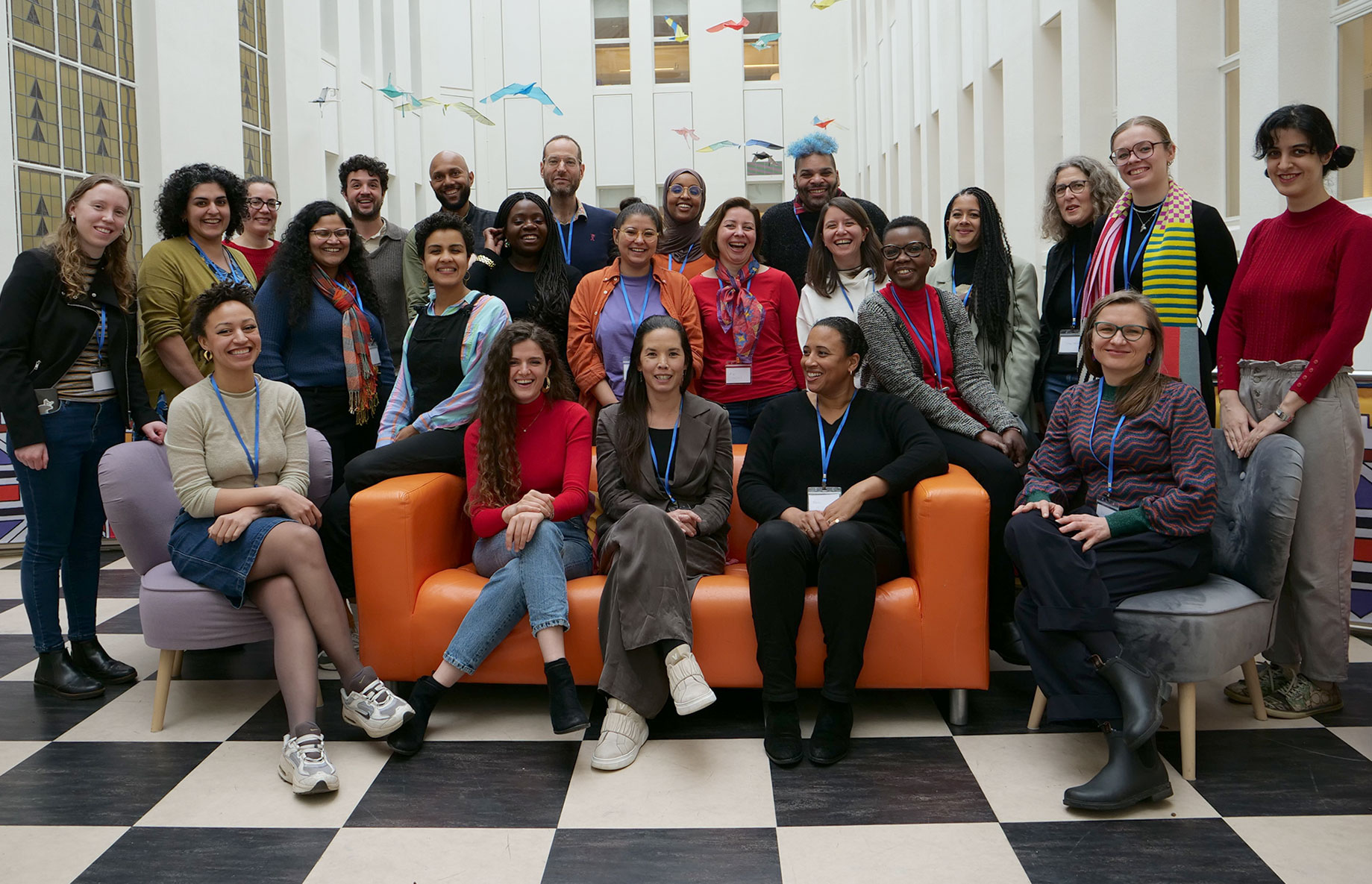
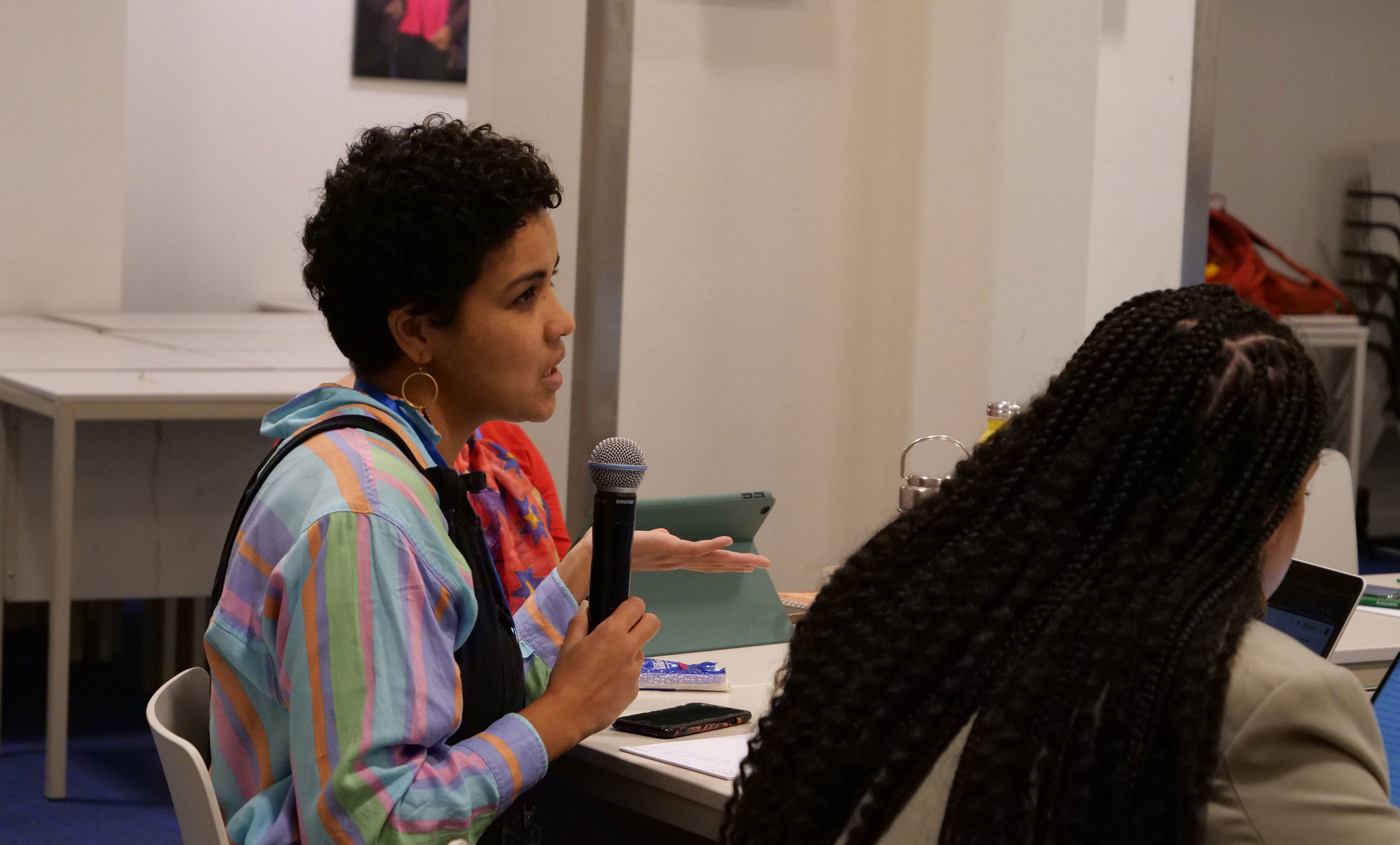
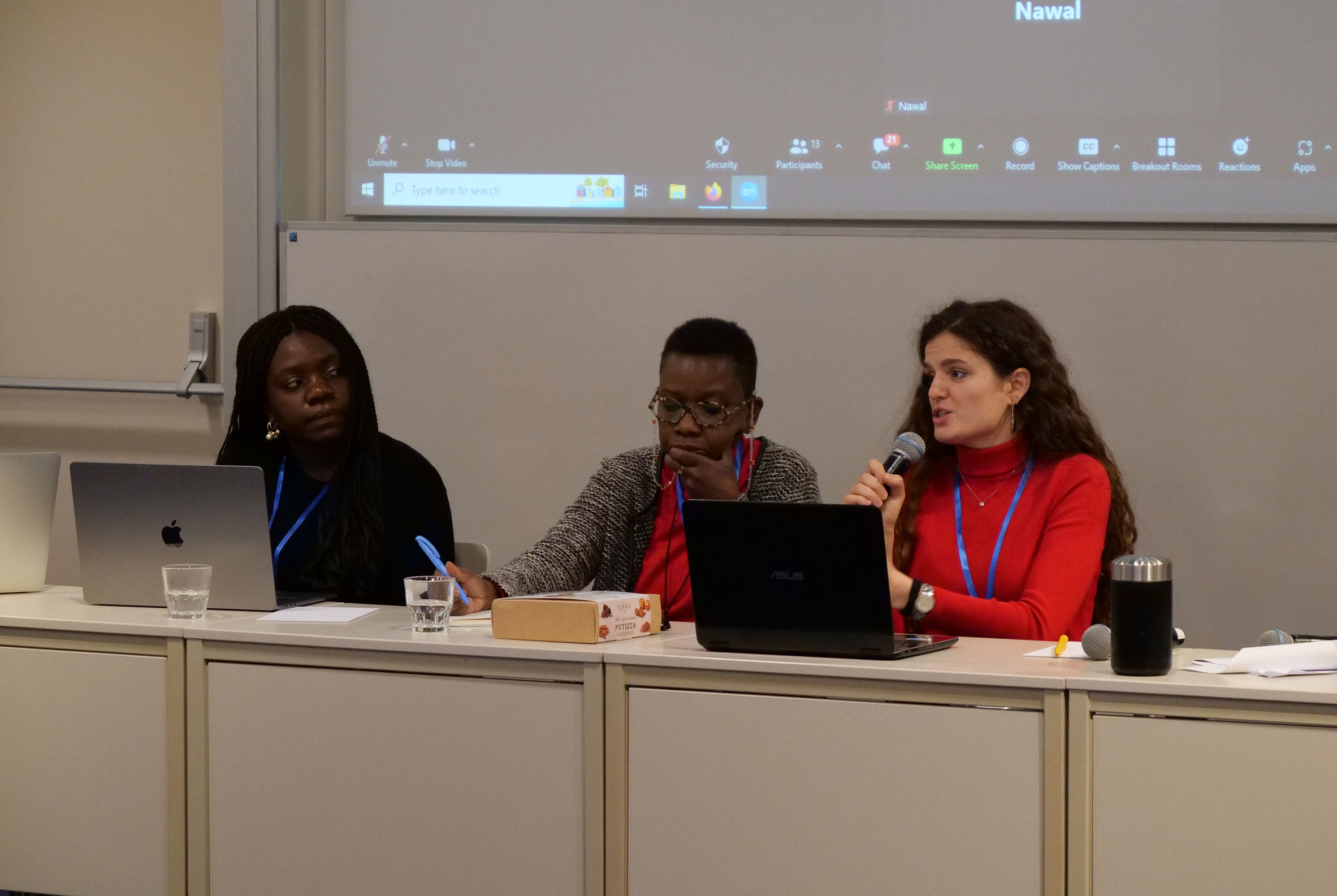
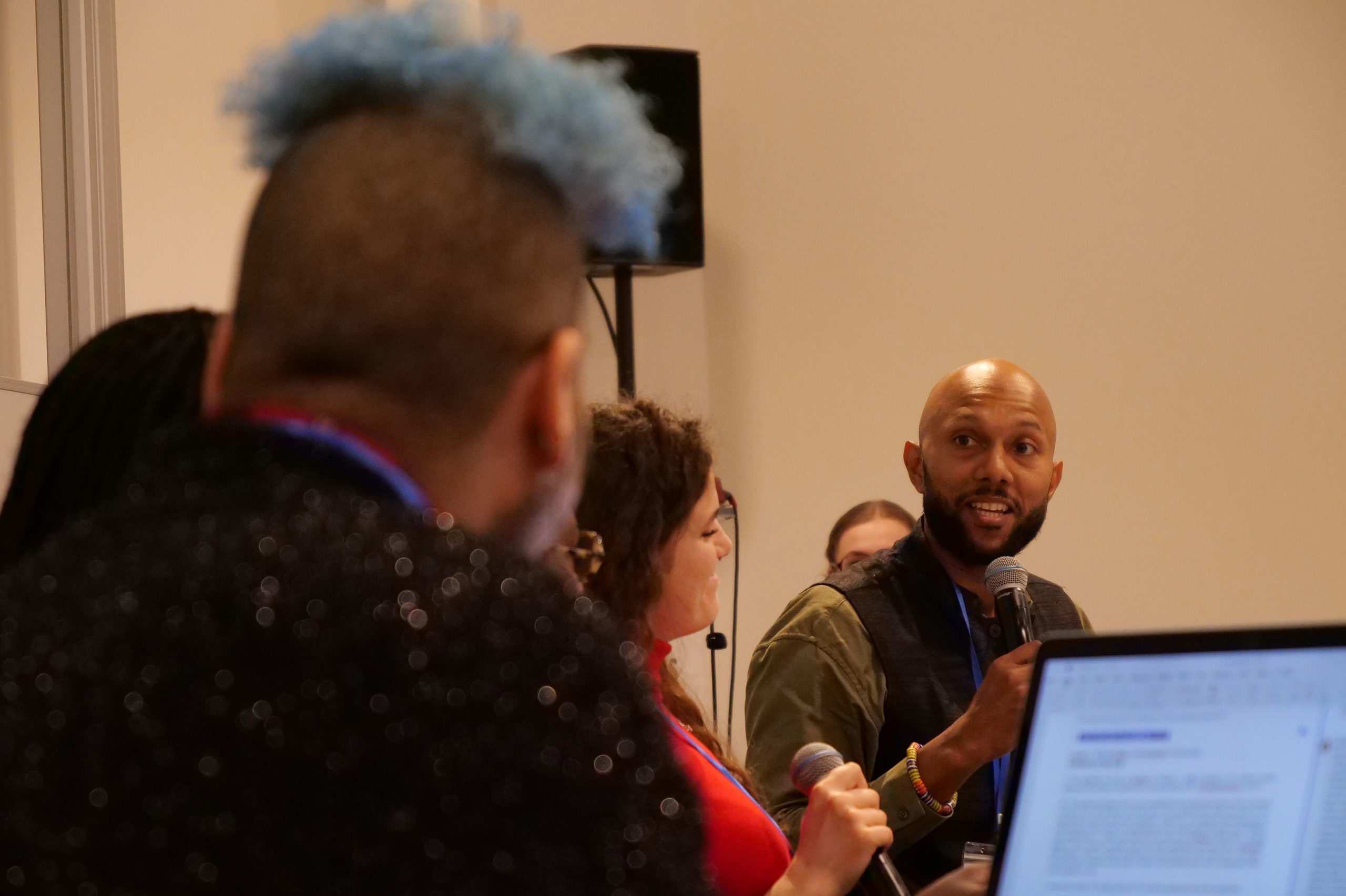
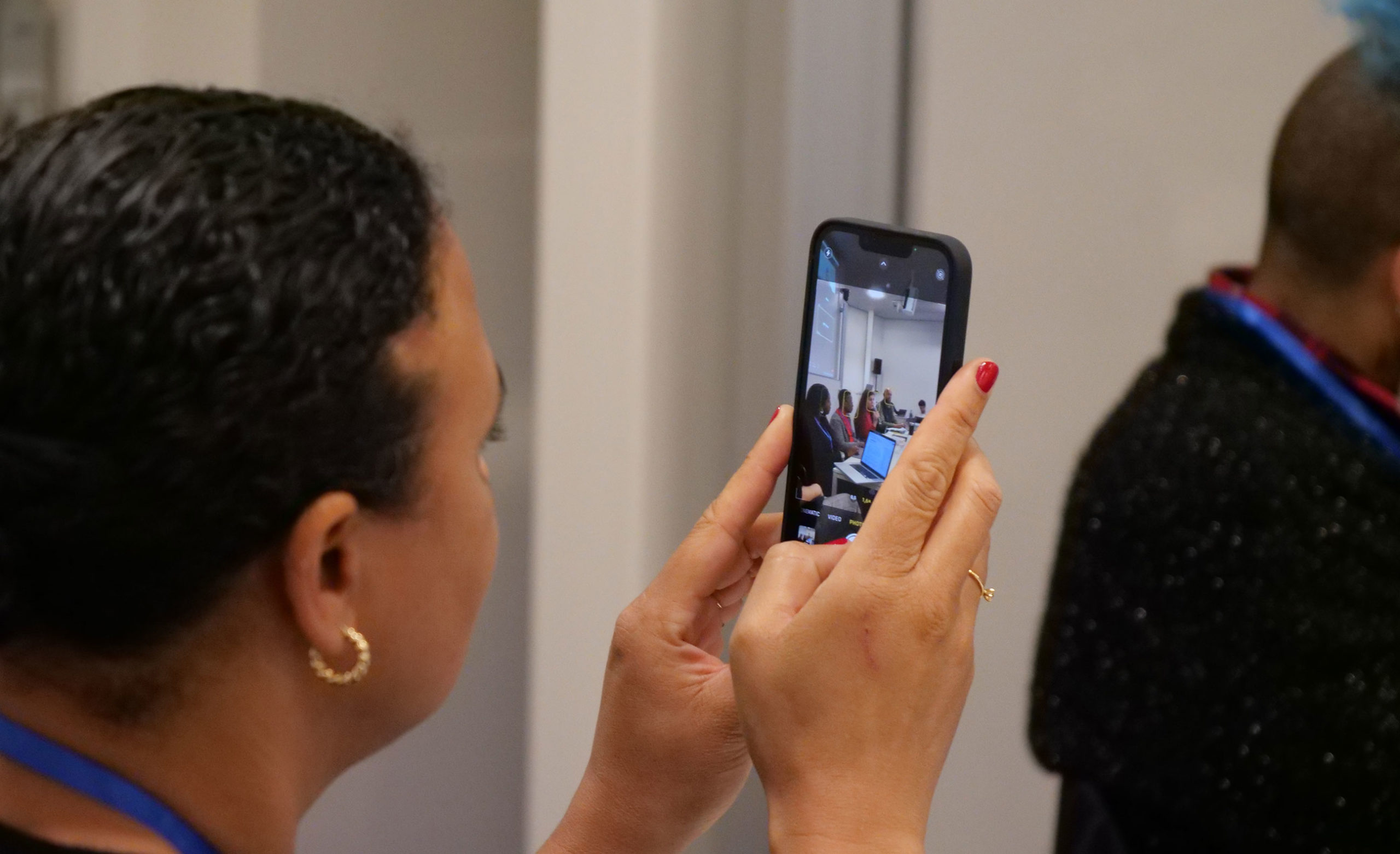
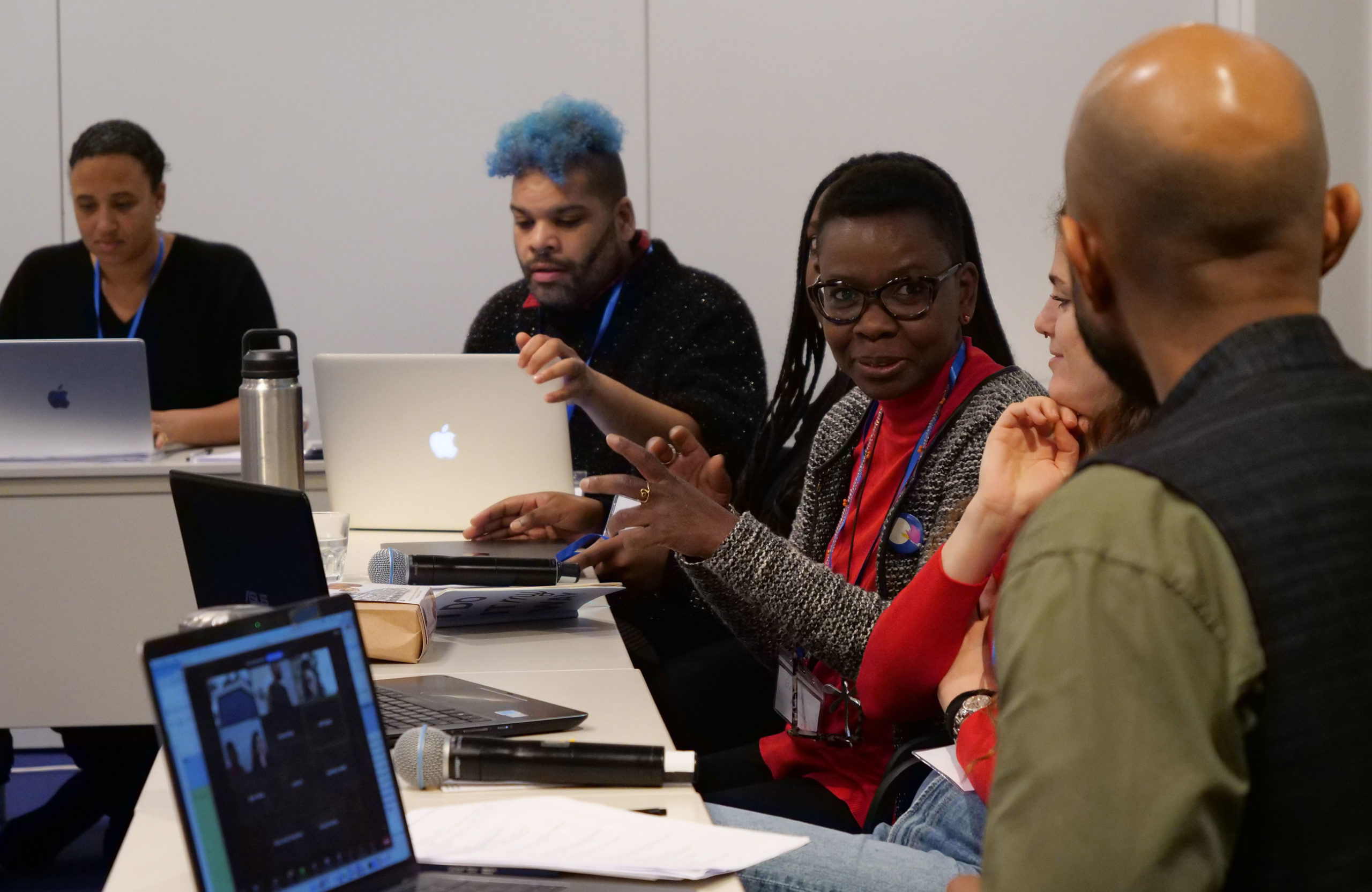
All photos by Gabriela Anderson.
The Intersectional Rewrites project is intentional in its setup: not only does it seek to demonstrate how the European Court could be working intersectionally in assessing human rights claims, it also deliberately moves away from fixed notions of who holds and produces knowledge. Understanding that intersectionality is not only academic theory but also lived praxis, the Community of Authors brings together lawyers, non-lawyers, activists, academics, and practitioners to jointly bring to life a vision of an intersectional European human rights jurisprudence.
During the workshop, authors provided feedback and suggestions to each other’s first drafts. Each author was assigned at least one other draft rewrite to review ahead of time. The assigned peer reviewers gave a brief introduction to the rewrite, setting out the key facts and circumstances of the case. Then, they provided feedback on the rewrite, addressing the following questions:
- What is strong about the rewrite as an intersectional reimagining of the Court’s caselaw and what, if anything, would you like to see more of?
- What would further strengthen the rewrite?
- Are there any concerns or red flags the author should be mindful of?
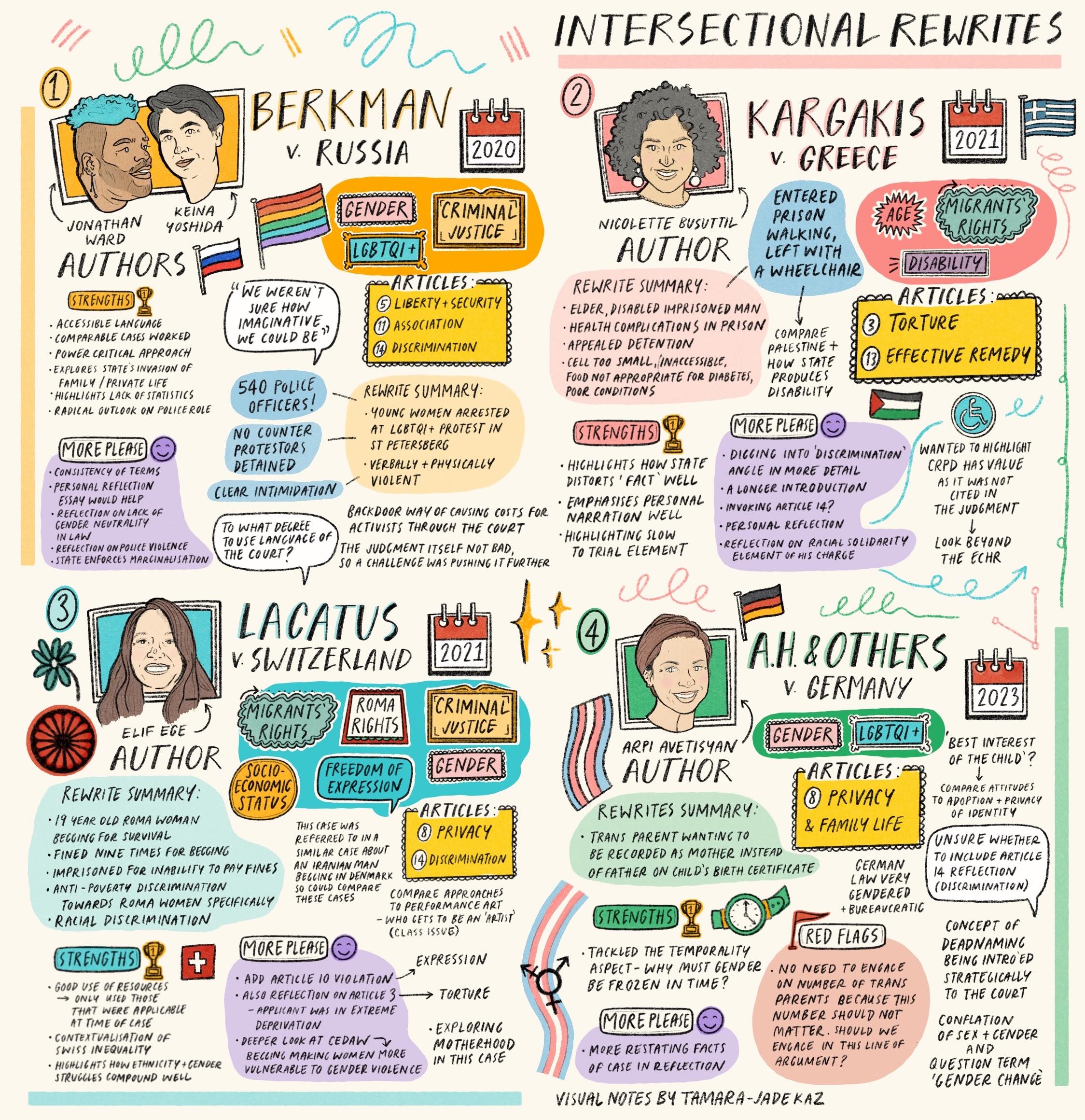
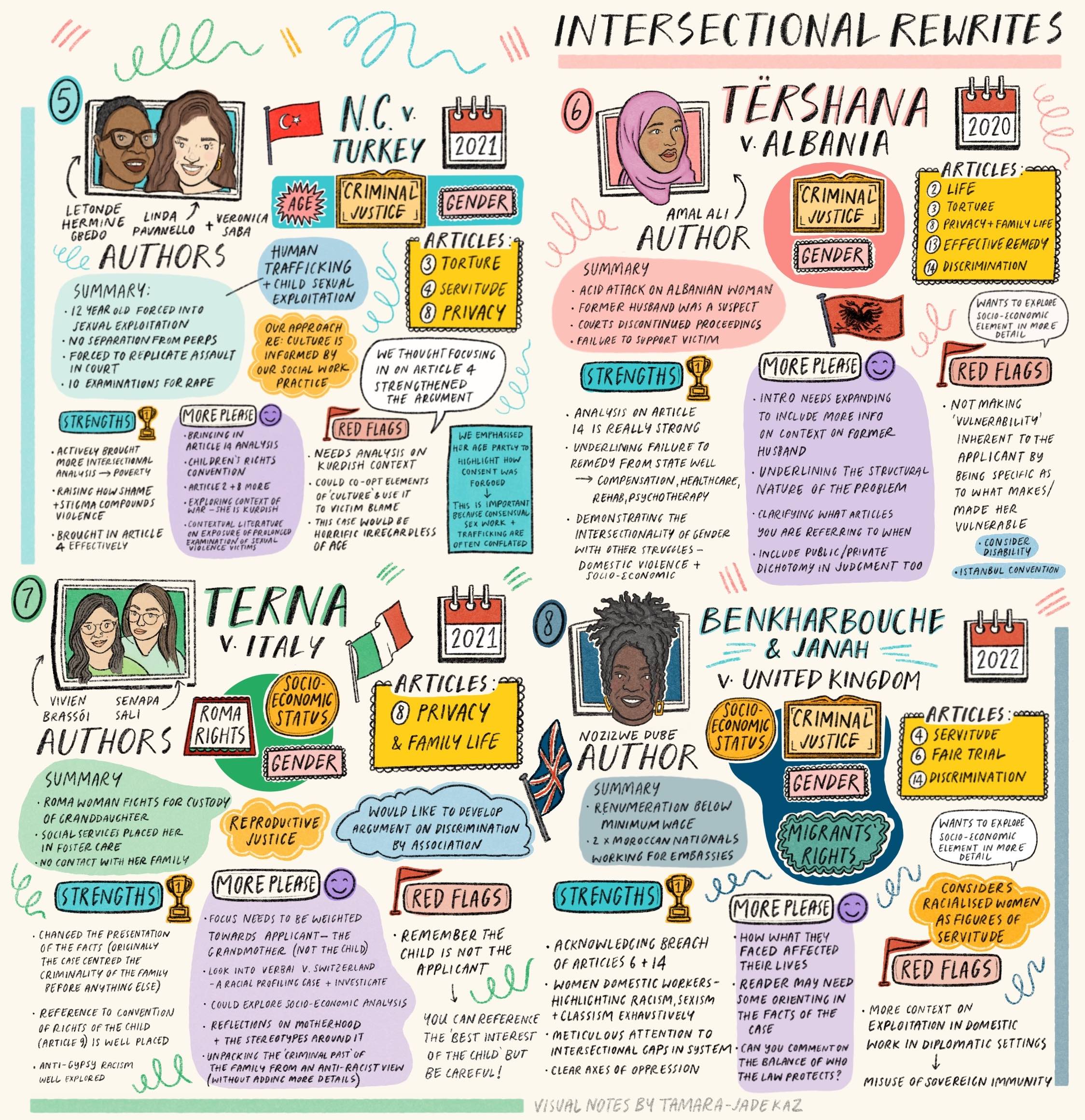
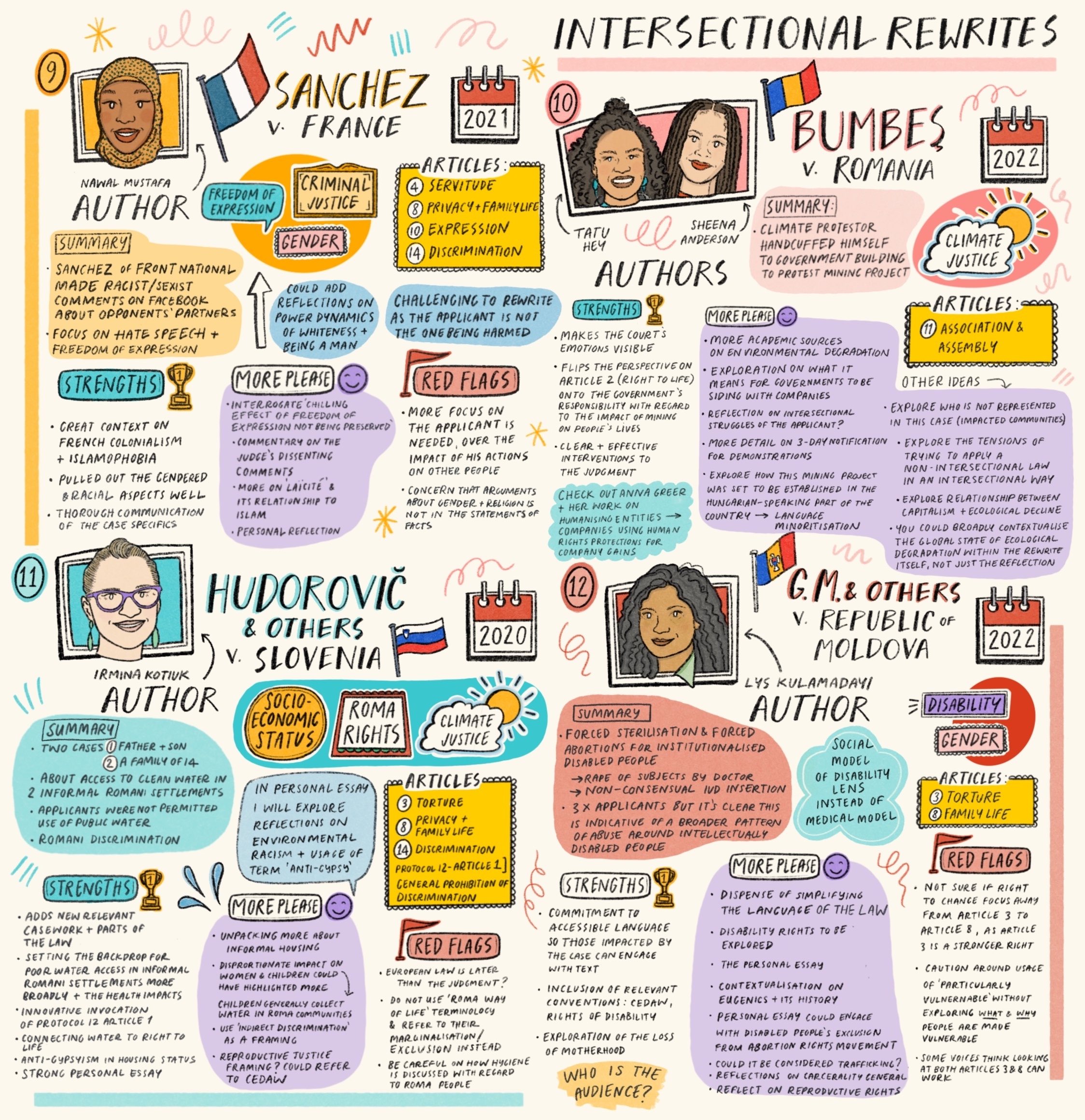
Tamara-Jade Kaz provided visual note-taking for the workshop, developing the beautiful illustrations above.
Following initial reflections from the author, the floor was opened for group discussion.
Each feedback session lasted 30 minutes, and no more than 2 sessions were run back to back to make sure there were enough breaks and everyone could remain focused. This also opened up the space for plenty of conversation over coffee and snacks.
We want to thank the Legal Mobilization Platform and International Institute of Social Studies for kindly hosting our workshop, and to the fabulous organising team for their support with logistics and note taking during the sessions.
